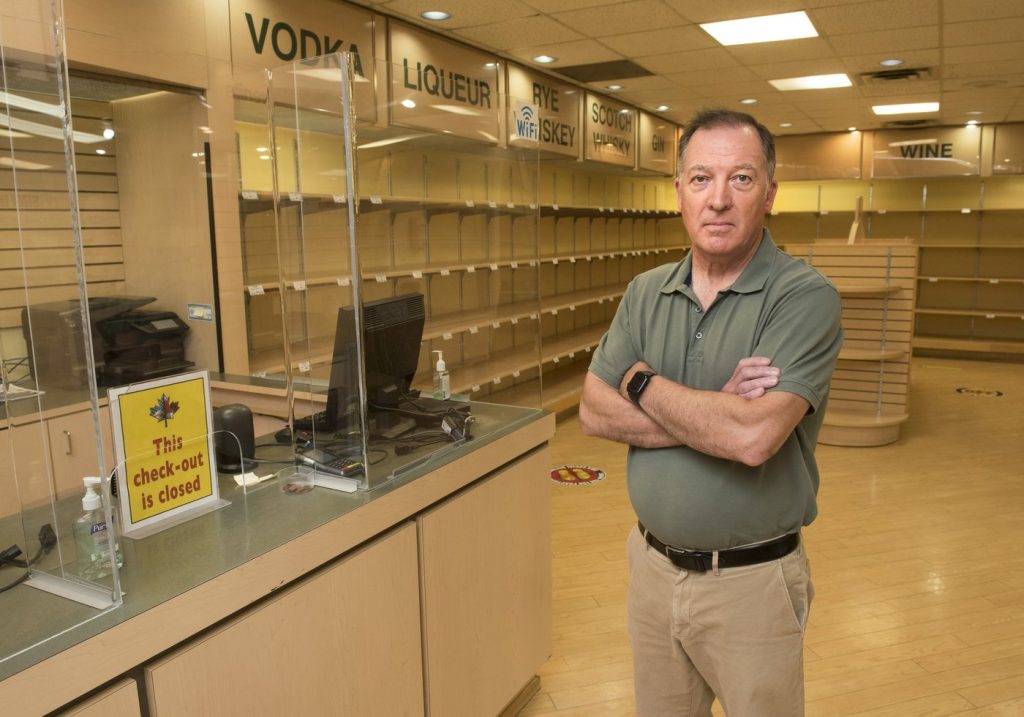John Slipp, who took over the Woodstock Duty Free Shop in 1994, has recently closed the store, primarily due to a significant decline in traffic at the U.S.-Canada border, further exacerbated by the COVID-19 pandemic. Slipp, now 59, finds himself searching for alternative income sources while also advocating for increased government support for duty-free shops like his. He noted that reduced border crossings have directly impacted sales, with fewer Canadians venturing south due to trade tensions and border treatment concerns influenced by former President Donald Trump's administration.
During its peak in the early 2000s, Slipp's store employed approximately 15 staff members. However, by March 2020, he had to lay off four employees, eventually reopening with only two post-pandemic. In summer 2021, Slipp expressed that the duty-free industry was starting from scratch to recover. By the end of 2024, sales were still down by about 20% compared to 2019 levels. The situation worsened between January and April of the following year, leading him to make the difficult decision to close the store entirely amid declining sales and traffic patterns.
Statistics Canada reported that the number of Canadians returning from the U.S. by car plummeted by 36.9% year-over-year in July, marking the seventh month of continuous decline. Barbara Barrett, executive director of the Frontier Duty Free Association, described the duty-free industry as experiencing a “full-blown crisis,” with sales dropping by 40 to 50% across the country. Some remote crossings even witnessed annual sales declines of up to 80%. Barrett emphasized that the current summer season should have been busy for duty-free stores, but traffic levels remain at pandemic lows, prompting concerns about further closures.
Unlike airport stores that are often run by international corporations, the land border duty-free shops are typically family-owned. As travel dynamics shift, many Canadians are now opting for domestic vacations or other international destinations due to the high costs associated with domestic travel. Travel expert Claire Newell highlighted that Canadians are unlikely to revert to their previous travel habits until a fair trade agreement is reached.
Barrett has proposed small regulatory changes to help the struggling duty-free industry, such as reducing taxes on products that their U.S. counterparts do not face. She has also suggested that stores qualify for tariff relief programs or pandemic-specific support similar to earlier wage or rent subsidies. Many duty-free shops rent land from the federal government or bridge authorities, and Barrett believes that rent deferrals or subsidies would substantially assist the industry during this turbulent period. Discussions with government officials have indicated a willingness to consider these proposals.
An announcement on August 2 noted the closure of Woodstock Duty Free Shop, stating that both provincial and federal governments promised support programs to mitigate the impacts of trade tensions. Slipp expressed disappointment that he did not succeed in finding a sustainable solution for his business, which he and his father built over the years. He is particularly focused on advocating for rent deferral programs for duty-free stores and loan options to sustain their operations.
Looking forward, Slipp has a grim outlook on the industry, stating that he is mourning the loss of his business while accepting the reality that the business environment has fundamentally changed. He conveyed his feelings of regret for not being able to sustain the establishment that he and his late father worked so hard to create. The future of the duty-free sector seems uncertain as various challenges continue to impede its recovery.











